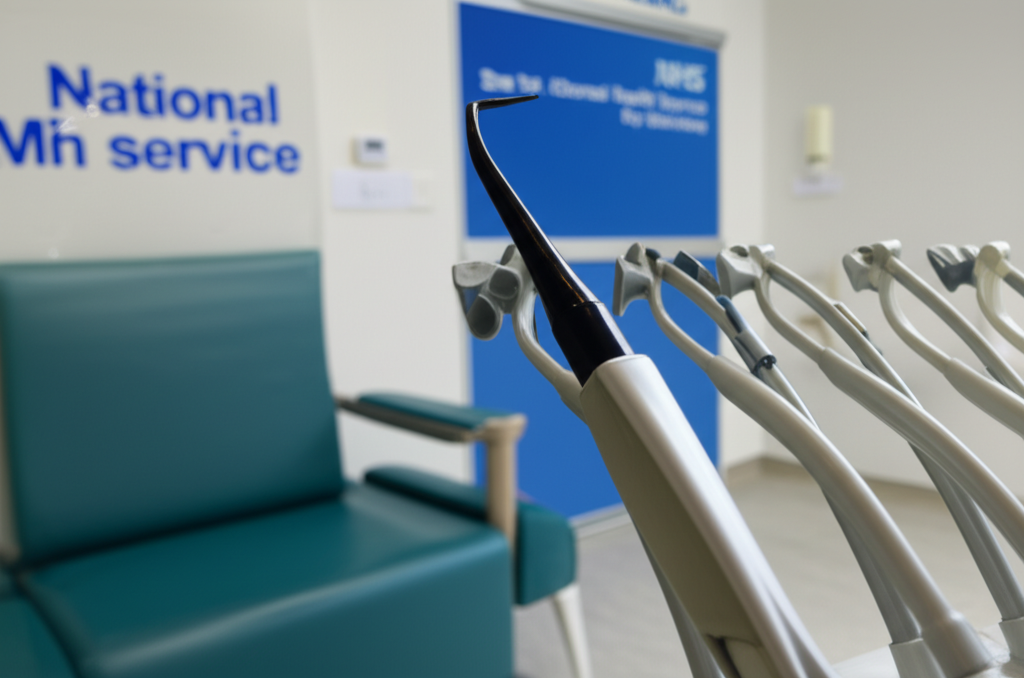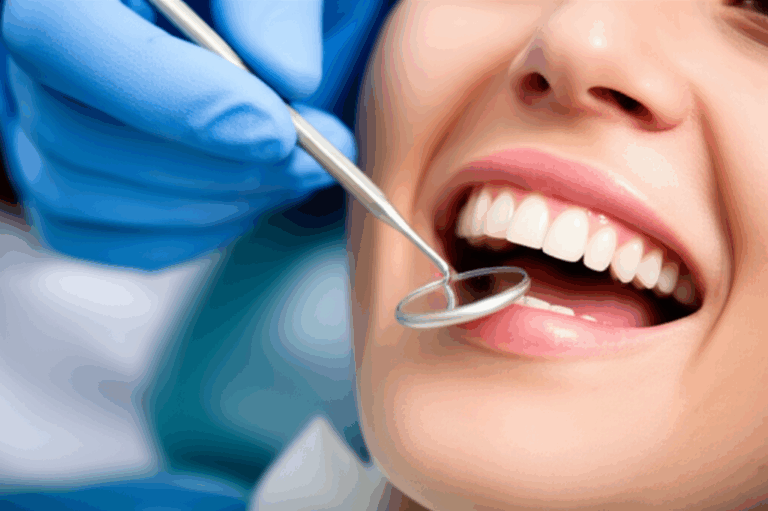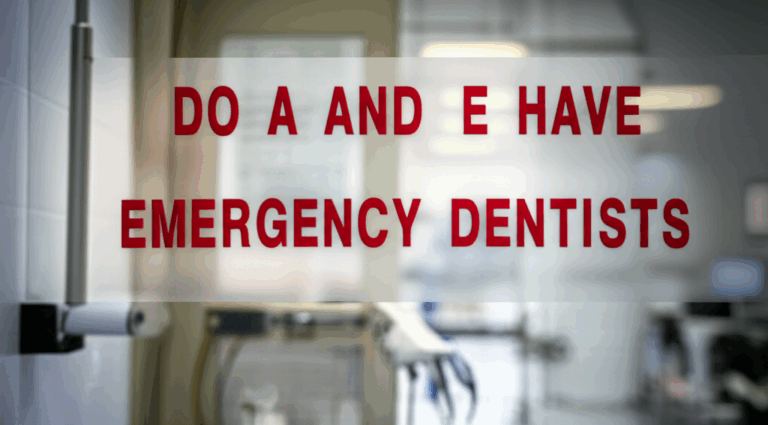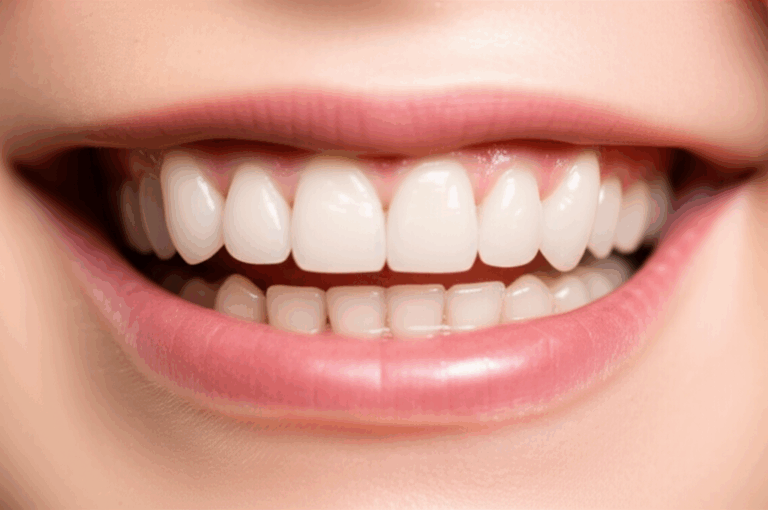
Are Dentists Covered by NHS? Your Guide to UK Dental Care Costs & Access
Introduction: The Reality of NHS Dental Coverage
You asked a simple question with a not-so-simple answer: Are dentists covered by the NHS? Yes, the NHS does provide dental care across the UK. It covers needed treatment to keep your mouth, teeth, and gums healthy. That doesn’t mean everything is free, and it also doesn’t mean you can always get in right away.
Covered vs free often causes confusion. “Covered” means the NHS offers or pays for the treatment. “Free” means you don’t pay a charge. Most people pay set NHS dental fees in England. Some don’t. Scotland, Wales, and Northern Ireland have their own systems and fees.
We’ll keep it clear in this guide. You’ll see what NHS dental care includes, what it doesn’t, what it costs, who gets help with charges, finding a dentist, emergency care, and how NHS and private dental care compare so you can choose what’s best for you.
In This Article
- Understanding NHS Dental Treatment: What’s Covered and What’s Not
- Who Is Eligible for Free NHS Dental Treatment?
- Finding and Registering with an NHS Dentist
- Emergency and Urgent NHS Dental Care
- NHS vs Private Dentistry: Understanding Your Options
- FAQs About NHS Dental Care
- Conclusion: Making Informed Choices About Your Dental Health
Understanding NHS Dental Treatment: What’s Covered and What’s Not
NHS dental care is about needed care. It covers what you need to keep or get a healthy mouth. If the work is only for looks, the NHS usually doesn’t cover it.
The NHS Dental Banding System Explained (Costs)
In England NHS dental fees fit into bands. These are set prices for your treatment plan. You pay once per plan, even if you come more than once for that same work.
- Band 1: Check-up, Diagnosis & Advice (£26.80)
- Includes: exams, diagnosis, X‑rays, advice, and a scale and polish if needed. Some preventive care like fluoride varnish if needed.
- Band 2: More Treatment (£73.50)
- Includes: everything in Band 1 plus fillings, root canals, and tooth removal.
- Band 3: Complex Treatment (£319.10)
- Includes: everything in Band 1 and 2 plus lab work like crowns, bridges, and dentures.
- Urgent Treatment (£26.80)
- A set fee for quick care to stop pain, bleeding, swelling, or injury. Dentist treats only the urgent problem.
Important:
- These fees are for England. Scotland, Wales, and Northern Ireland have their own systems and prices.
- NHS dental prices can change, so check the NHS website before you go.
Many Band 3 treatments need a dental lab. They make crowns to fix broken teeth or bridges to fill spaces or dentures for missing teeth. Private dentists use these special labs too. Learn more about how this work is done at crown and bridge labs, denture labs, and digital dental labs.
What NHS Dentistry Typically Covers (Needed Care)
NHS dental care gives you what you need to keep your mouth healthy:
- Check-ups and tests: Exam, X-rays if needed, and hygiene advice.
- Preventive care: Scale and polish if needed, gum checks, fluoride varnish for those at higher risk of decay, and advice on keeping teeth clean.
- Fixing teeth: Fillings, root canals, and extractions (if a tooth must come out).
- Lab work: Crowns, bridges, and dentures if they are needed and right for you.
- Braces (mostly for kids): NHS braces are for kids who really need them. Adults don’t often get NHS braces unless there’s a good reason.
- Sedation and special care: For people with high anxiety, disability, or health needs, your dentist can refer you to NHS dentists who work in the community or hospital.
Treatments Generally NOT Covered by NHS
The NHS doesn’t pay for things just for looks.
- Cosmetic treatments: Whitening, cosmetic veneers, and bonding. Smile makeovers.
- Dental implants: You almost always have to pay privately for implants unless you’ve had trauma or serious illness. Most people pay for implants themselves.
- Some braces: Mild crowding in teens or cosmetic reasons rarely qualify. Adults almost never get NHS braces except in rare cases.
- White fillings on back teeth: The NHS uses tooth-coloured fillings if it’s the clinical choice, but back teeth usually get silver-coloured (amalgam) fillings. If you want white on back teeth for looks, you often pay privately.
Who Is Eligible for Free NHS Dental Treatment?
Some people don’t pay. Others can get help with charges if their income is low.
Automatic Exemptions
You don’t pay NHS dental fees in England if:
- You’re under 18.
- You’re under 19 and in full-time education.
- You’re pregnant or had a baby in the last year.
- You’re an NHS hospital in-patient and the hospital dentist treats you.
- You’re treated by an NHS hospital dental service as part of your hospital care (but may pay for dentures or bridges).
- You get certain benefits: Income Support, income‑based Jobseeker’s Allowance, income‑related Employment and Support Allowance, Pension Credit Guarantee Credit, or Universal Credit (if your earnings are below a set level).
- You have a valid HC2 certificate.
You’ll need to show proof. The dentist has to check so bring your evidence. If you’re not sure, ask before your visit.
All UK nations are different. Always check local NHS pages for rules.
Help Through the Low Income Scheme (HC2/HC3 Certificates)
If your income is low, you can apply for help. Fill out form HC1 for the NHS Low Income Scheme. You might get:
- HC2: Full help. No NHS dental charges.
- HC3: Partial help. Lower charges.
This is open to both working and jobless people. They check your income, savings, and expenses.
A note about Universal Credit:
- Universal Credit might get you free NHS dental treatment if your pay in the last month is low enough. Bring your most recent Universal Credit statement and ask what parts the dental office needs to see.
Finding and Registering with an NHS Dentist
Finding NHS dental care can be hard these days in parts of the UK. But it’s not impossible—you just have to try a bit more.
The Current Landscape: Problems in Accessing NHS Dentistry
Many places have fewer dentists taking on NHS patients. Some reasons why:
- Demand is higher than dentist numbers: Many regions have long waits. Some counties have less than half of practices accepting new adults. Some much less.
- Funding and contracts: NHS dentists are paid by “units of dental activity” (UDAs). Many dentists say this system can make it hard to take on complex cases. Some contract fixes have started, but access is still a problem.
- Dentist shortages: Many report burnout. Some dentists leave the NHS or move abroad or to private work.
- Some areas have bigger problems: Rural and coastal places often have longest waits. City centres can also struggle.
Example
In one rural area with about 500,000 people, over 70% of practices weren’t taking new NHS adult patients. Routine check-ups stretched to 6–12 months for many. People sometimes delayed care or paid privately if possible. More dental pain showed up in A&E departments. This is not just one place—it’s seen in many areas.
Practical Steps to Find an NHS Dentist
There are still ways to get in:
- Use the NHS Find a dentist tool (search by town or postcode). It shows what dentists in your area are taking NHS patients. Check back regularly since this changes often.
- Call practices directly. Websites can be out of date. The team can tell you their waitlist or tell you when to call back. Ask if they have special lists for children or urgent cases.
- Try the NHS App and local NHS web pages. Some local boards post updates.
- Ask about cancellations or last-minute slots. Some practices keep a list to call if a space opens suddenly.
- If you can’t find a practice: Ring NHS 111 for help on urgent problems. Ask if there are local urgent dental centres for pain or emergencies.
- Consider a private check-up if you can afford it, while you look for an NHS dentist. Check the costs first.
- If you have a disability, ask about community dental services. They help people who need a different setting or support.
Note about “registering”
You don’t register with a dentist forever. You go to a practice as an NHS patient when they have room. There are no set catchment areas like with GPs. You can try any practice in England offering NHS care.
Emergency and Urgent NHS Dental Care
Toothache can ruin your day. If you’re in pain, getting fast help matters. The NHS has ways to help.
When to Seek Urgent Care
Get help fast if you have:
- Strong pain that doesn’t go away with simple pain relief.
- Bleeding you can’t stop after a tooth is pulled.
- Swelling in your face that spreads or makes it hard to breathe or swallow (this is a real emergency).
- Accidents that damaged your teeth, such as a knocked‑out tooth, broken jaw, or cuts that don’t stop bleeding.
- Spreading infection signs: fever, swollen glands, or if you feel generally unwell.
If you’re not sure, call NHS 111. They can help work out what’s needed.
How to Access Emergency Services
- Contact your dentist first. They save some spaces most days for urgent care.
- Out of hours: Call NHS 111. They’ll give advice, sometimes book you into urgent dental care, or send you to emergency care if it’s very serious.
- Urgent care centres: Some places have NHS urgent dental clinics for people without a regular dentist or for bad problems that can’t wait. You often need to go through NHS 111 or get a referral first.
Cost
- If you get urgent NHS dental care in England, it’s £26.80 for that visit—even if the dentist only takes away the pain or swelling. Any follow-up may cost extra depending what you need.
NHS vs Private Dentistry: Understanding Your Options
You might have to choose: wait for NHS care, or pay for private. Here’s what you need to know.
Key Differences in Cost
- NHS care: Set fees by band in England. These are often less than private prices. Other UK nations have their own price systems.
- Private care: Prices can be much higher or vary by where you are and what you need. Whitening, implants, and most cosmetic work are private only. Some private plans let you spread costs.
Differences in Treatment & Availability
- NHS: Focuses on needed treatment, with basic options and standard materials. You might wait longer for an appointment.
- Private: More options, including for looks. Shorter waits. Extra choice in appointment times and possibly the dentist you see.
Quality of Care
Both NHS and private dentists must meet the same professional standards regulated by the General Dental Council (GDC). The quality depends on the dentist, the time for the treatment, and the materials used. Private visits often have longer appointments and more material options. NHS care sticks to national guidelines and needed work.
FAQs About NHS Dental Care
Can I get white fillings on the NHS?
Sometimes. The NHS uses tooth-coloured fillings if they are suitable. On back teeth, silver fillings are common, but you can pay privately for white.
Does the NHS cover teeth whitening?
No. That’s a private, cosmetic choice.
How much does an NHS filling cost?
Filling a tooth falls under Band 2 (£73.50) in England. This covers the exam and any X-rays for that plan too.
How much is a tooth out on the NHS?
Tooth removal is also Band 2 (£73.50).
What does a root canal cost on the NHS?
Root canal is Band 2 (£73.50). If a crown is needed after, you pay Band 3 (£319.10).
What do crowns, bridges, and dentures cost on the NHS?
These are Band 3 treatments (£319.10) for the plan.
Are dental implants covered by the NHS?
Hardly ever. Only in special, clinical cases. Almost everyone pays privately.
What about braces on the NHS?
Braces (orthodontics) are for children with higher clinical need. Most adults cannot get NHS braces.
How often should I have an NHS dental check‑up?
It’s not the same for everyone. Your dentist decides how often you need to come in—could be 3 to 24 months depending on your risk.
Can I switch NHS dentists?
You can try. There’s no long-term registration. It depends on who has space.
What if my NHS dentist offers private treatment?
They must explain your NHS options first. Private is a choice—they must give you clear costs.
Does the NHS cover scale and polish?
If you need it for gum health, yes. Not just for clean-looking teeth.
How do I pay for NHS dental treatment?
Most accept cards, some cash. You pay once for your whole plan.
What’s a UDA in NHS dentistry?
Means Unit of Dental Activity—how dentist’s NHS work is measured.
What if I can’t find an NHS dentist?
Keep trying. Use the NHS website, call around, join cancellation lists, call NHS 111 if urgent.
Are dental prescriptions also charged?
Yes, unless you’re exempt.
Does the NHS cover veneers?
No, unless there’s a real dental need (not just for looks).
Can I choose my NHS dentist?
You can try any practice, but it depends on who has room.
How long do NHS treatments last?
Varies a lot. Good care helps all dental work last longer.
What if I need a specialist or surgery?
Your NHS dentist can refer you, but there can be a wait.
NHS dental emergency number?
Call NHS 111.
Is NHS dental care free for children?
Yes, under 18s don’t pay in England.
Is NHS dental care free for pensioners?
Only if you get certain benefits, not just because of age.
Students?
Under 19 and in full-time education—no fee. Over 19: normal charges unless you’re exempt.
Is NHS dentistry overseas?
No, the NHS only pays for care in the UK.
How do I complain about NHS dental care?
Start at the practice, follow their complaints process, escalate to NHS England if needed.
The Simple Science Behind Coverage: Why the NHS Focuses on “Clinically Necessary”
Your mouth is part of your overall health. Gum disease can affect other health problems like diabetes. Dental infections can get very serious. Eating, speaking, and smiling all matter.
NHS dentistry uses resources for the most important care. It’s not aiming for perfect-looking teeth—it’s about working, healthy teeth for all. Think of it like this: The NHS pays to fix your car’s brakes and tyres, not for a new paint colour or fancy extras—you can get those privately if you want.
What This Means for Common Treatments (Real Examples)
- Fillings: Cavity in a back tooth? The NHS will fill it with a strong material to work. Want it white just for looks? That might be private.
- Root canal or taking the tooth out: If a tooth is badly infected, the NHS covers both options. Both are Band 2. Crowns after root canal make it Band 3.
- Crowns and bridges: Cracked molar? The NHS will cover a crown. Missing tooth that affects chewing? The dentist might suggest a bridge or denture.
- Braces for kids: Serious problems? NHS covers. Only cosmetic crowding? Not covered.
- Implants: Rare on the NHS, except after big trauma.
Access, Fairness, and What’s Changing
You’ve heard about the NHS dental crisis. A lot of it is about getting seen. Policy makers talk about new contracts and funding. NHS England has tried some changes, like adjusting payments and giving support in certain areas. Dental groups push for bigger changes. The main aim is for patients to get the care they need when they need it.
What can you do right now
- Keep your teeth healthy at home: brush, floss, eat less sugar, and don’t smoke.
- Book sooner rather than later if you find a practice.
- Ask about help paying if your money situation changes. The HC2/HC3 certificates can help.
- Look out for updates. Lists can open suddenly—be ready to call.
Materials, Labs, and What to Expect
When you need a crown or denture, a dental lab is involved, making your restoration from scans or impressions.
- Crowns and bridges: Often metal or ceramic, with more choice in private care.
- Dentures: Plastic or metal frames, made to fit by lab specialists.
- Implants: Usually private, a specialist puts in the metal “root.” A lab makes the new tooth to fit on top.
- Digital dentistry: Some dentists use 3D scanning instead of putty moulds.
Special Groups: Children, Pregnant Women, Disabled Adults, and More
- Children and teens: Under-18s don’t pay in England. Early check-ups are pushed. Sealants and fluoride help protect teeth. Braces if needed.
- Pregnant/new parents: No dental charges in England if you’re pregnant or recently had a baby.
- Disabled adults or those needing extra help: Community dental services give special support.
- Asylum seekers, refugees, homeless people: Can get urgent and needed NHS care, with possible help with costs.
Preventive Care: Small Habits, Big Results
You can’t control waiting lists—but you can control what you do each day:
- Use a fluoride toothpaste twice a day and spit, don’t rinse.
- Clean between your teeth every day.
- Cut down on sweets and sugary drinks.
- Don’t smoke.
- Go to your dentist as advised.
What If You Want Both Private and NHS Care?
It’s common to mix care—urgent NHS work, later private work like implants.
- Always ask for a written plan splitting NHS and private work.
- Private means more choice (like all-ceramic crowns or tooth coloured fillings not covered by NHS).
- Private visits often mean longer, more flexible appointments.
Your Rights and How to Raise Concerns
As an NHS patient, you have rights:
- Clear info: Get a written plan and costs up front.
- Safety: Dentists must follow standards set by the GDC.
- Complaints: Start with the practice. If it doesn’t help, try NHS England or your health board. Big worries can go to the GDC.
The Compassionate Educator Quick Guide: Question – Explain – Guide – Empower
- Question: Are dentists covered by the NHS and what does it cost?
- Explain: Essential treatment is covered. You pay set NHS fees unless you’re exempt. England has Bands 1–3 and urgent care. Other UK nations are different. NHS doesn’t cover cosmetic work.
- Guide: Use NHS Find a Dentist, call around, call 111 in urgent cases. Compare NHS and private for speed, materials, cost.
- Empower: Protect your mouth at home. Apply for the Low Income Scheme if you can. Bring proof of benefits or exemptions. Speak up if you’re unsure.
Conclusion: Making Informed Choices About Your Dental Health
Here’s the simple version: You can get NHS dental care for what you need. Not everything is free, and times are tough in lots of areas, but with some effort, you can get the right care.
Key points
- The NHS covers needed dental work, not cosmetic stuff.
- England prices (now): Band 1 £26.80, Band 2 £73.50, Band 3 £319.10, urgent care £26.80. Other UK countries have their own rules and costs.
- Free if under 18, under 19 in full‑time education, pregnant/newly had a baby, get certain benefits, are a hospital in-patient, or have an HC2 certificate.
- It isn’t always easy to get an NHS place, so keep trying and call 111 if you need urgent help.
- NHS and private dentists have the same training. Private means more choice and faster care.
Next steps
- If you have a dentist, book your check-up. If not, call around, join waiting lists, check the NHS website.
- In pain? Call NHS 111.
- Struggling with money? Apply for the Low Income Scheme (HC1 form).
- Brush, floss, cut down on sugar. Prevention saves you money.
- Always ask for a written, clear plan and compare NHS and private.
- Trusted places for more info:
- The NHS website (latest dental rules and charges)
- General Dental Council (GDC) (professional standards and raising concerns)
- British Dental Association (BDA) (updates, policy)
It’s normal to feel a bit confused about NHS dental care. But simple steady steps, a bit of effort, and asking when you’re unsure will help you get the care you need. Your future self—and your smile—will thank you!








